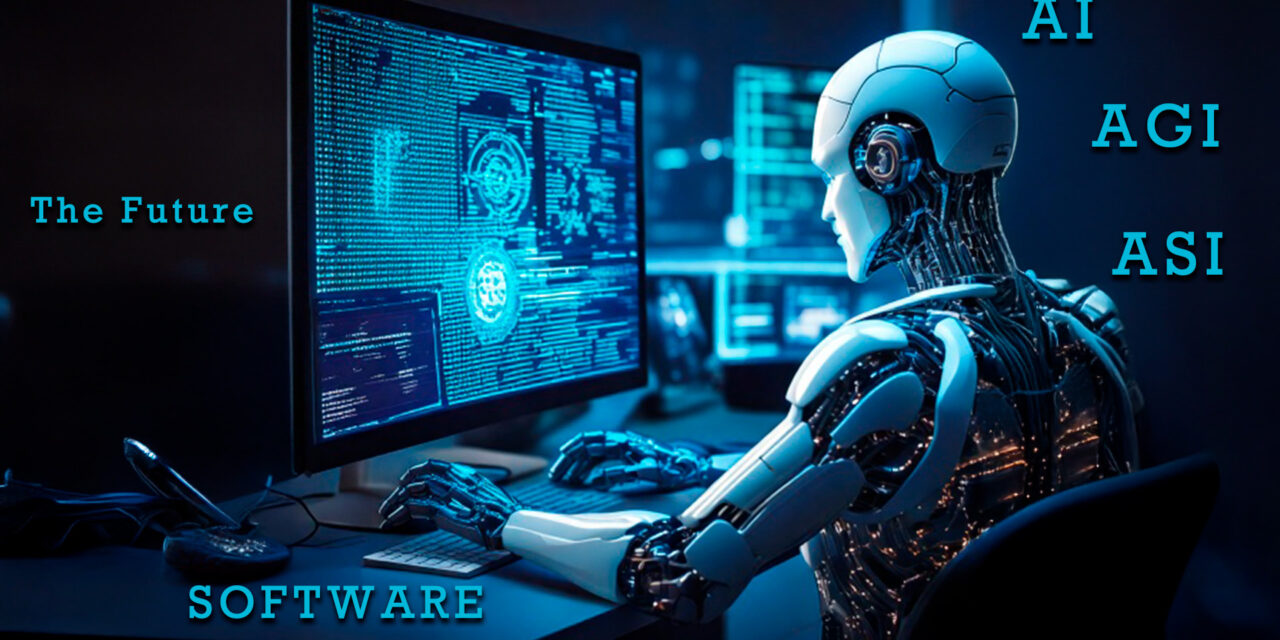Software is evolving faster than ever, driven by AI, cloud computing, and automation. As businesses and developers adapt to these advancements, what does the future hold for software? Will AI replace developers? Will no-code platforms dominate? Let’s explore the trends shaping the future of software development and its long-term fate.
The Evolution of Software: Past to Present
Software has come a long way from the early days of punch cards and mainframes. Here’s a brief look at its evolution:
- 1960s-1980s: Software was mainly developed for large mainframe computers and used in enterprises.
- 1990s-2000s: The rise of personal computing and the internet led to mass software adoption.
- 2010s-2020s: Cloud computing, mobile apps, and AI-driven software changed how applications are built and used.
Now, in 2025 and beyond, the focus is on automation, AI, and decentralization, reshaping how software is created, distributed, and maintained.
Key Trends Shaping the Fate of Software
1. AI-Generated Code: The End of Human Developers?
AI-assisted coding is revolutionizing software development. Tools like GitHub Copilot and ChatGPT for coding can generate, debug, and optimize code. But will AI replace human developers?
Reality Check: AI can handle repetitive coding tasks, but complex problem-solving and creative development still require human expertise. The future is likely AI-assisted development, where AI enhances productivity rather than replacing programmers.
2. No-Code and Low-Code Platforms: Democratizing Software Development
Platforms like Bubble and OutSystems allow users to build apps with little or no coding. These platforms are:
- Speeding up development by reducing manual coding.
- Enabling non-technical users to build applications.
- Lowering costs for startups and businesses.
Will no-code replace traditional software development? No. While it simplifies app creation, custom software for complex applications still requires traditional coding.
3. Cloud Computing: The Software Backbone
Cloud platforms like AWS, Google Cloud, and Microsoft Azure continue to dominate software infrastructure. Key trends include:
- Serverless computing (e.g., AWS Lambda) reduces infrastructure management.
- Edge computing processes data closer to users for faster performance.
- Multi-cloud strategies help businesses avoid vendor lock-in.
The cloud is the foundation of modern software, and its influence will only grow.
4. Open Source vs. Proprietary Software: Who Wins?
Open-source software (OSS) powers much of the digital world, from Linux to Python. But big tech companies like Microsoft and Google also invest in proprietary software.
What’s the future?
- Open-source software will thrive due to community collaboration and transparency.
- Proprietary software will dominate in enterprise and AI-driven applications where security and customization are priorities.
- Hybrid models (e.g., open-source core with premium features) will become the norm.
5. Cybersecurity and Privacy: Software’s Greatest Challenge
With cyberattacks increasing, software security is a top concern. Emerging trends include:
- AI-driven cybersecurity for real-time threat detection.
- Zero-trust security models ensuring only verified access.
- Blockchain-based security for decentralized data protection.
As software becomes more powerful, protecting it from cyber threats will be a crucial part of its fate.
The Future of Software: Predictions for the Next Decade
- AI-first development – AI will write, test, and optimize code at an advanced level.
- Decentralized applications (DApps) – Blockchain will power more decentralized software models.
- Human-AI collaboration – Developers will work alongside AI to build software faster and smarter.
- Quantum computing impact – Advanced computing power will reshape encryption, AI, and complex problem-solving.
- Software-defined everything – From smart cities to autonomous systems, software will control more aspects of daily life.
Conclusion: The Fate of Software Lies in Innovation
Software will continue to evolve, driven by AI, cloud computing, and new security challenges. While automation and no-code platforms will change development, human expertise will remain essential. The future belongs to those who adapt, innovate, and embrace technology—whether as developers, businesses, or users.






Recent Comments